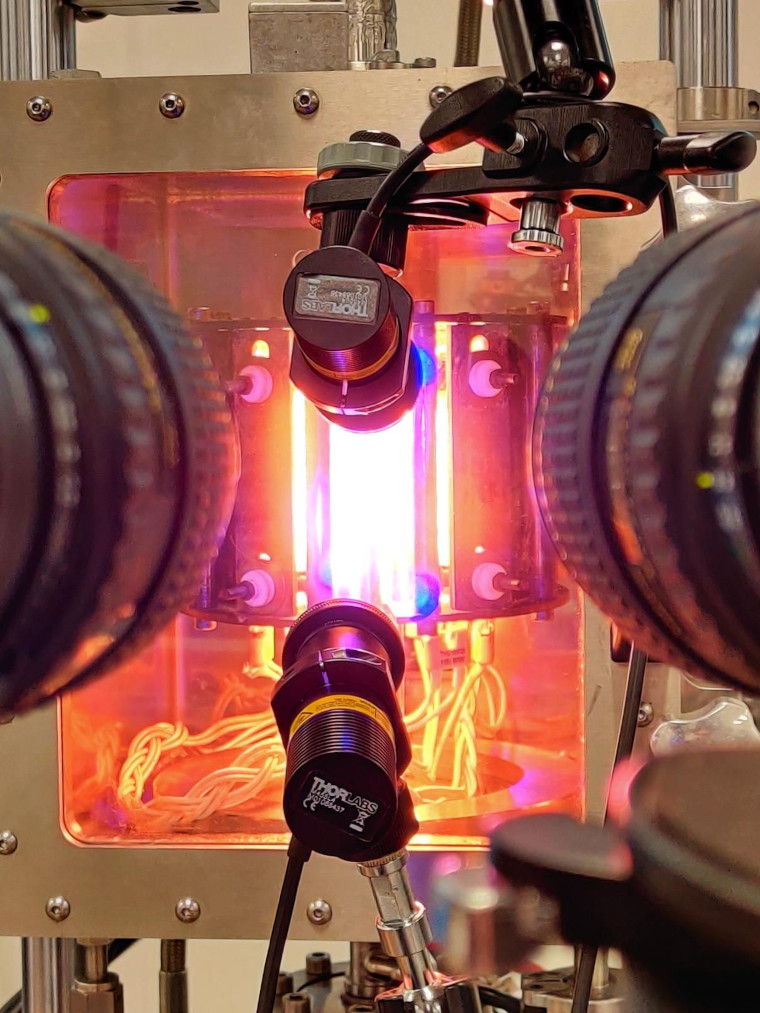UHT-MaT: Ultra High Temperature Materials Testing Infrastructure
A unique UK facility for the mechanical testing of materials at temperatures exceeding 2,000°C.
UHT-MaT will be a unique UK facility for the mechanical testing of materials at temperatures exceeding 2,000°C, a major step forward in advanced materials research.
Led by Principal Investigator Dr Allan Harte, the facility is due to be commissioned in 2028 and will feature state-of-the-art environmental conditions and diagnostics.
As part of the Henry Royce Institute, UHT-MaT will operate under a shared access model, ensuring broad availability to the UK research community. Training, collaborative research, and data-sharing initiatives will further amplify its national impact.
Capabilities
UHT-MaT will allow researchers to understand, optimise and innovate in materials and component technology development for operation at ultra-high temperatures. The facility will support the testing of plasma-facing components in fusion machines, and also materials used for hypersonic flight and thermal-nuclear propulsion in space exploration. These environments produce intense thermal loads and mechanical stresses, which UHT-MaT will provide in a controllable, repeatable way.
UHT-MaT’s core objectives are to provide:
- mechanical material testing at temperatures above 2,000°C – filling a gap in UK capability, which is largely limited to ~1,600°C, and complementing UKAEA’s wider extreme temperature testing capability at material and component scale
- testing in environments relevant to fusion and adjacent industries – including vacuum and gasses
- high quality diagnostics and data capture – supporting a data-centric approach to testing which will validate simulations, characterise uncertainty, and minimise the overall volume of physical testing needed
- a national user facility to maximise economic and scientific impact – supporting the growth of a community for knowledge sharing, and building skills through training
Project information
Design is underway. Commissioning is expected for 2028, after which there will be calls for access.
UHT-MaT is funded by an Engineering and Physical Sciences Research Council Strategic Infrastructure grant (EP/U537007/1).
